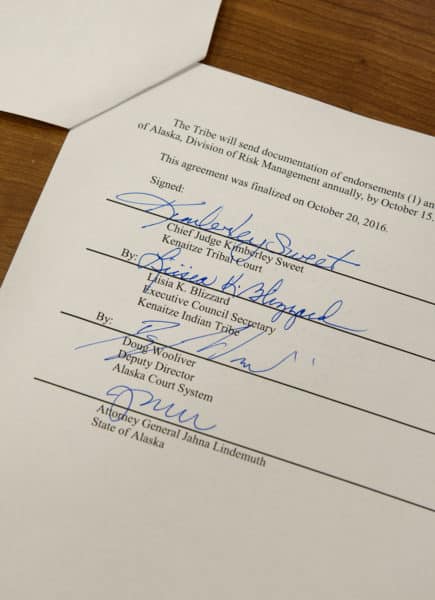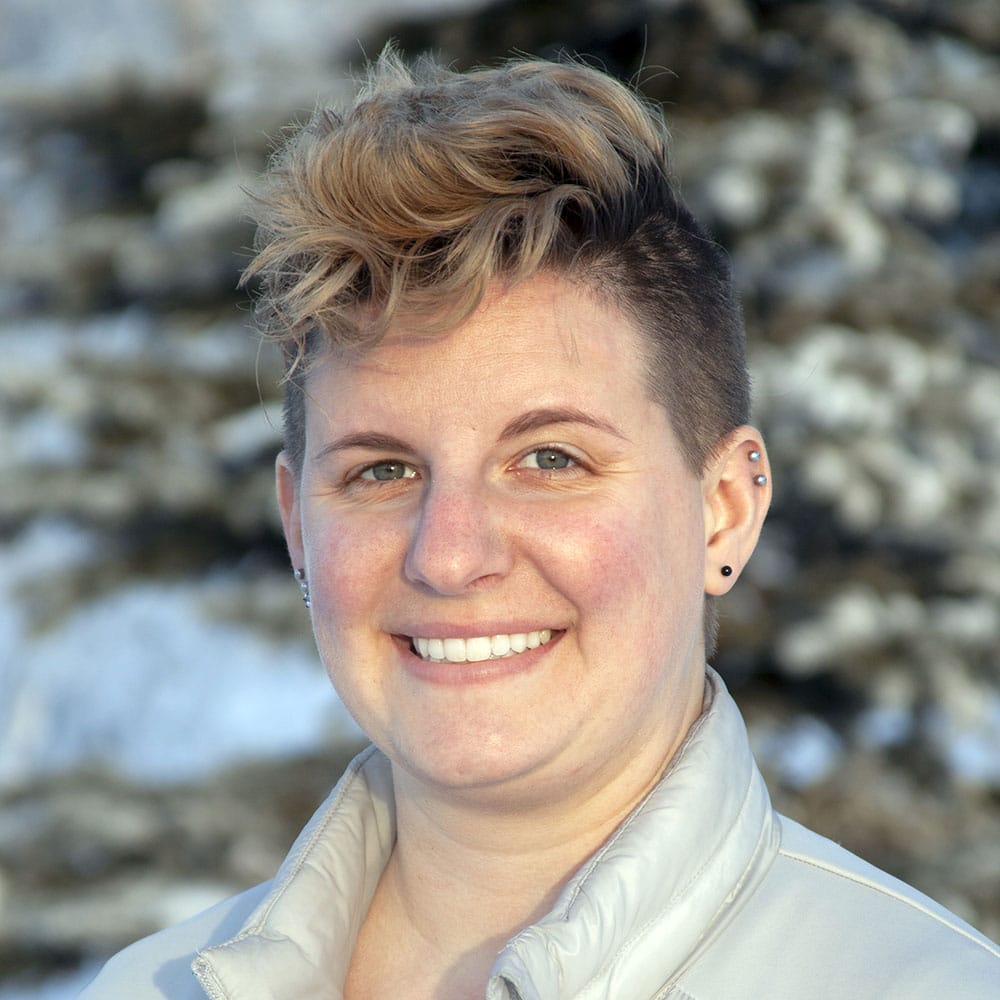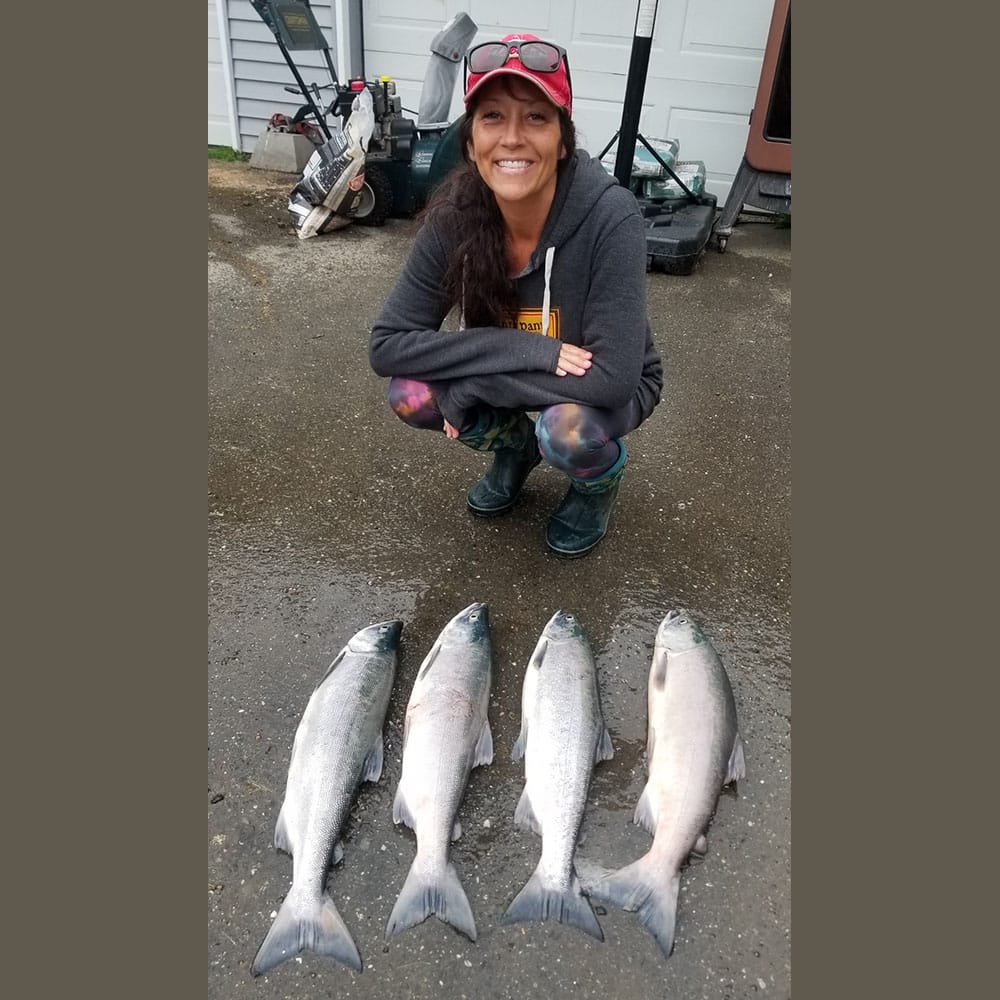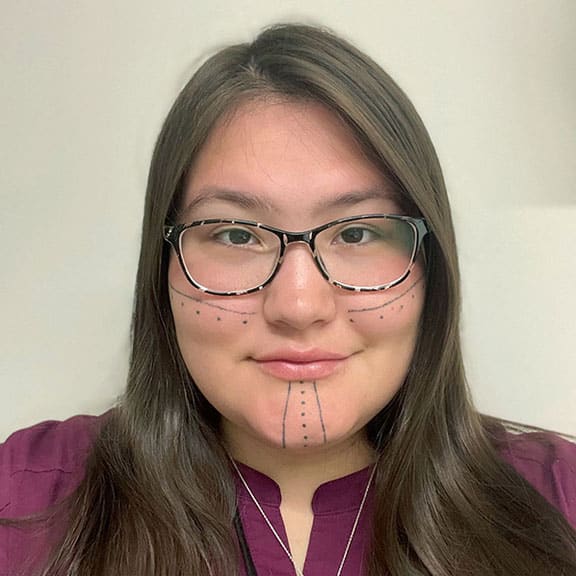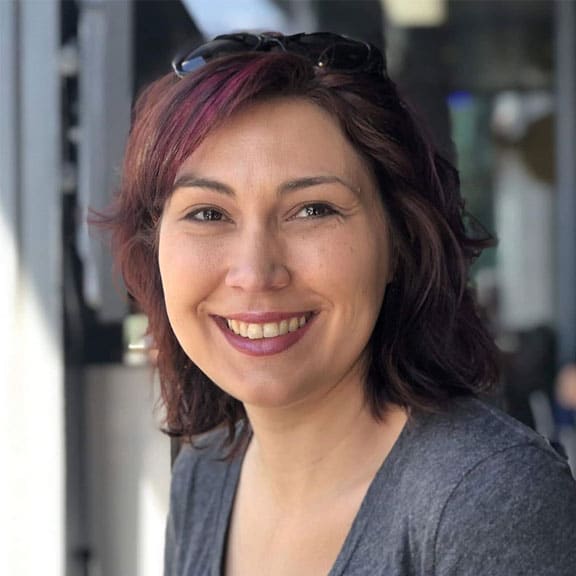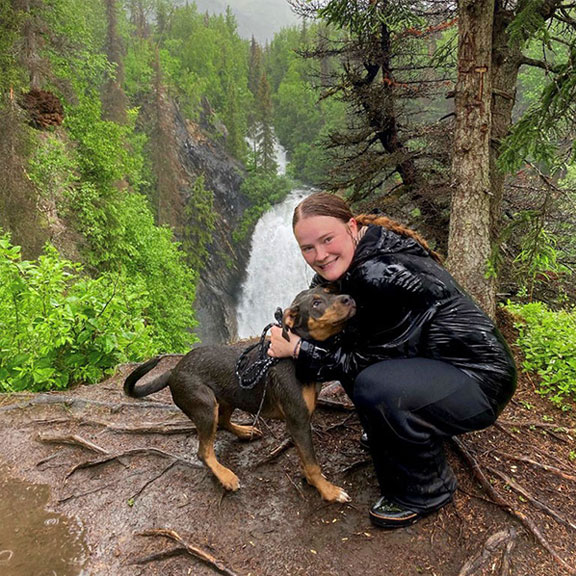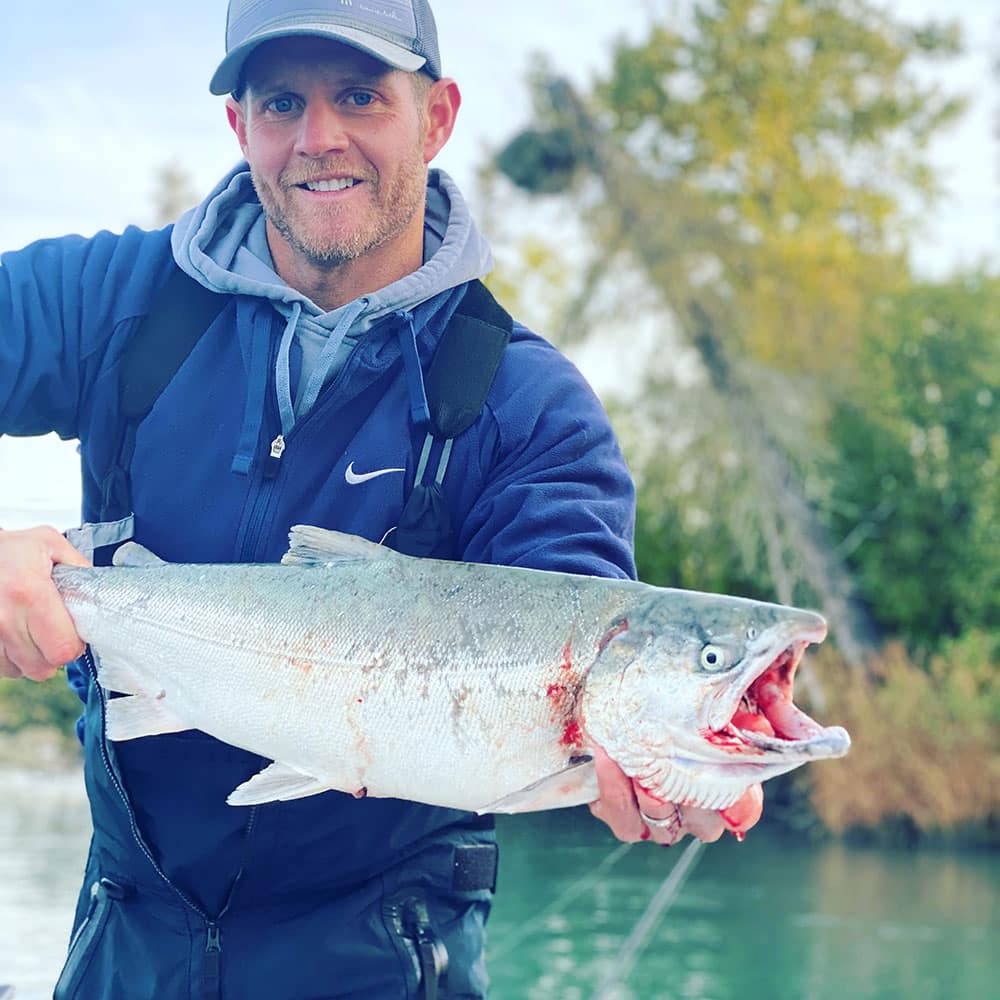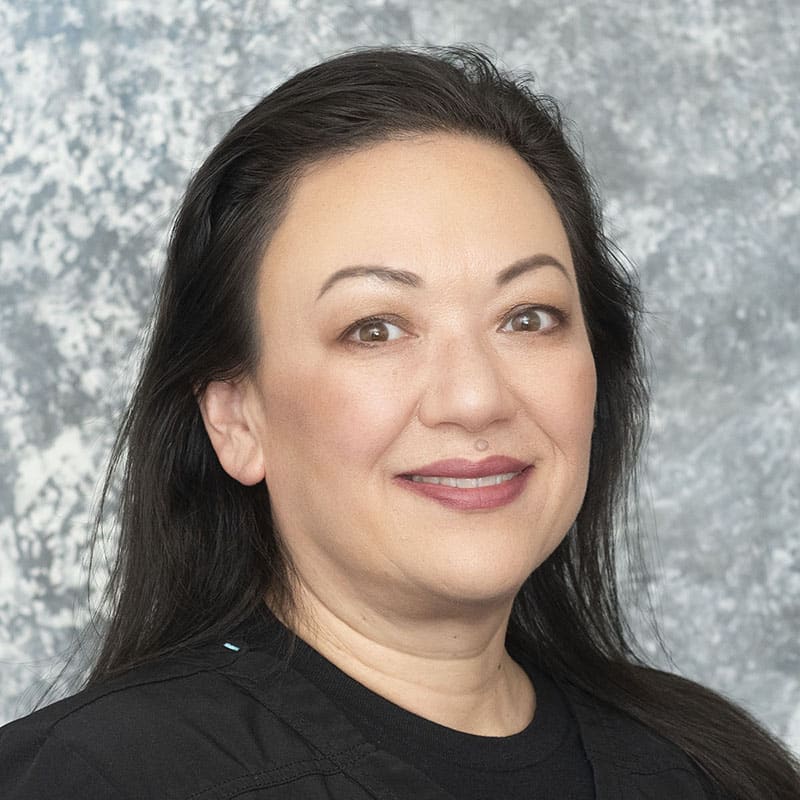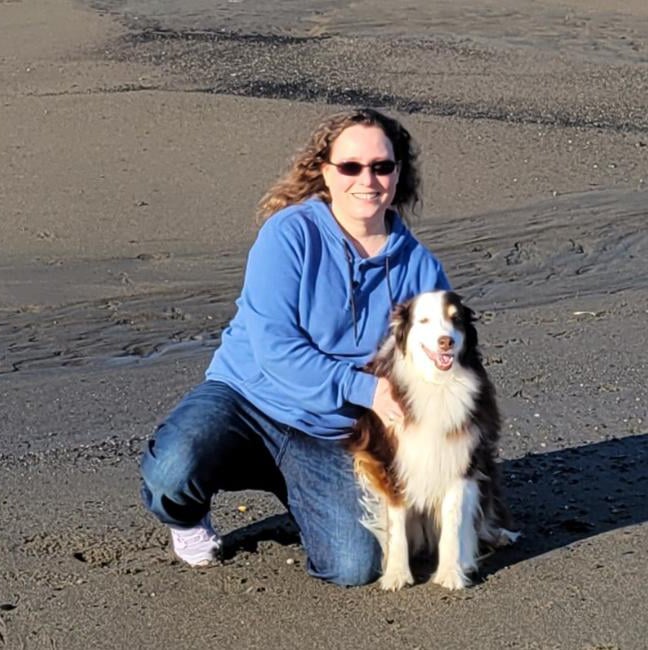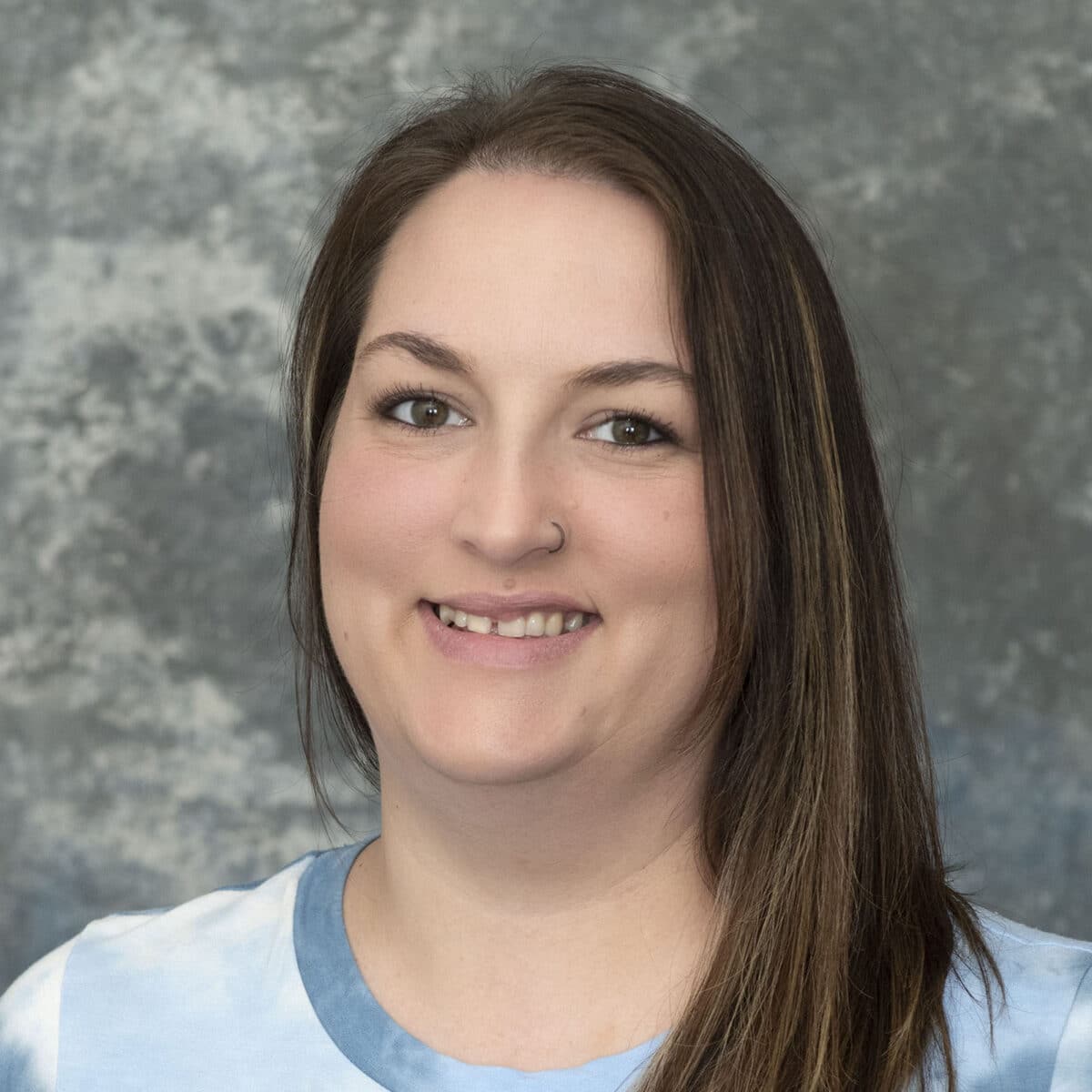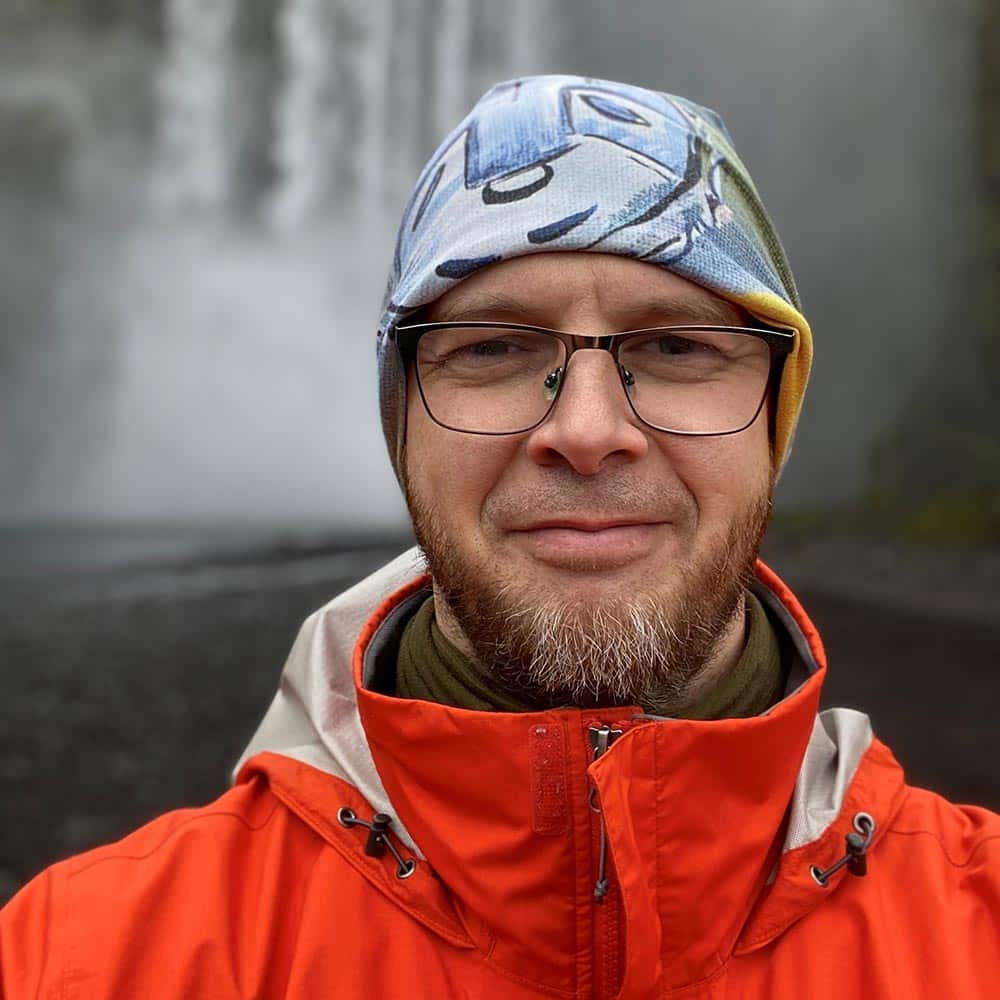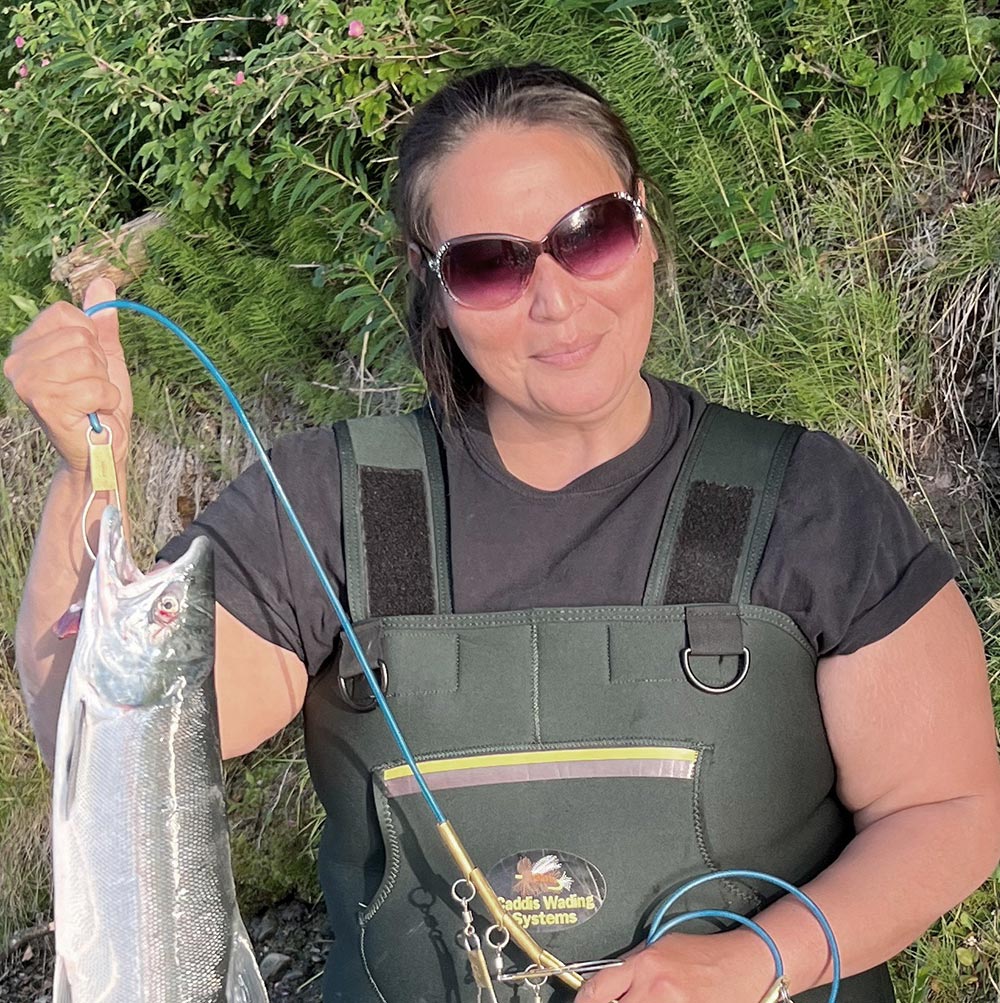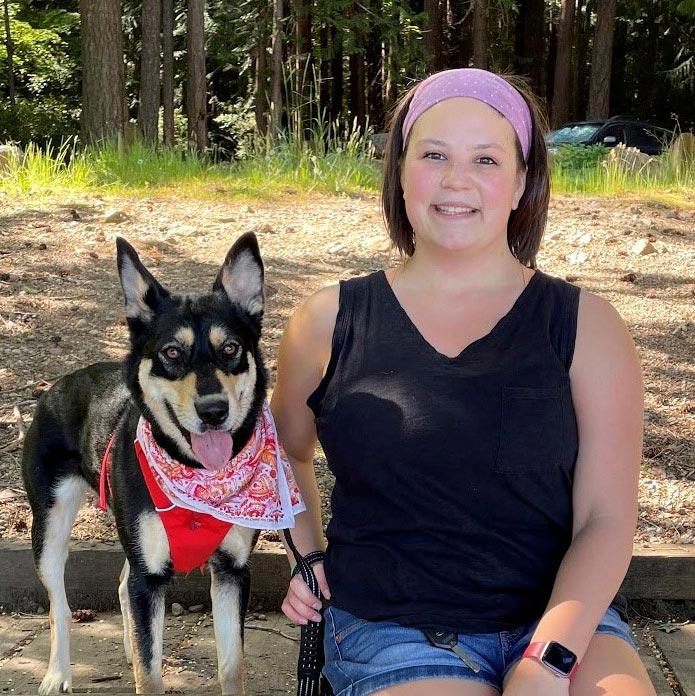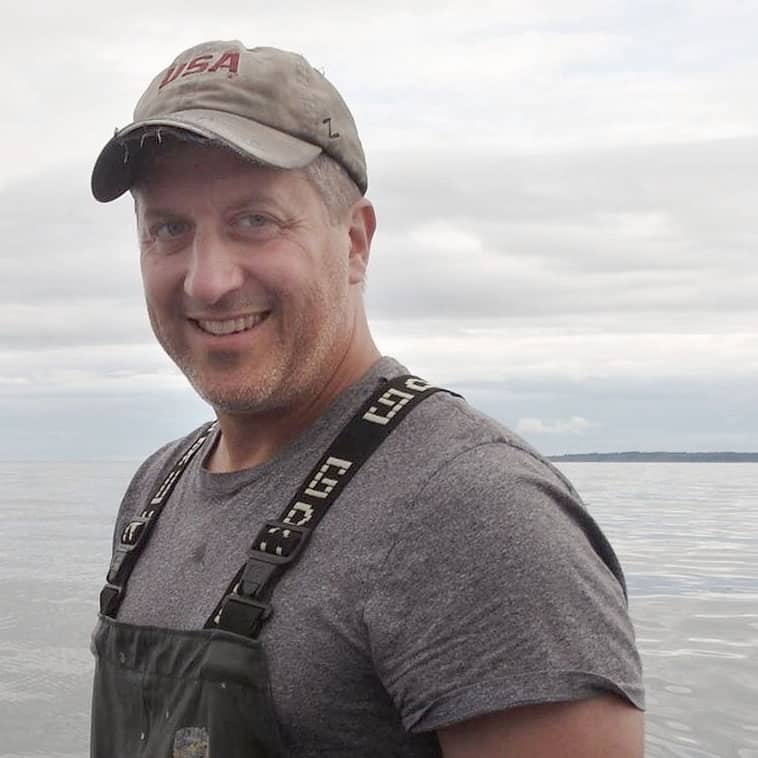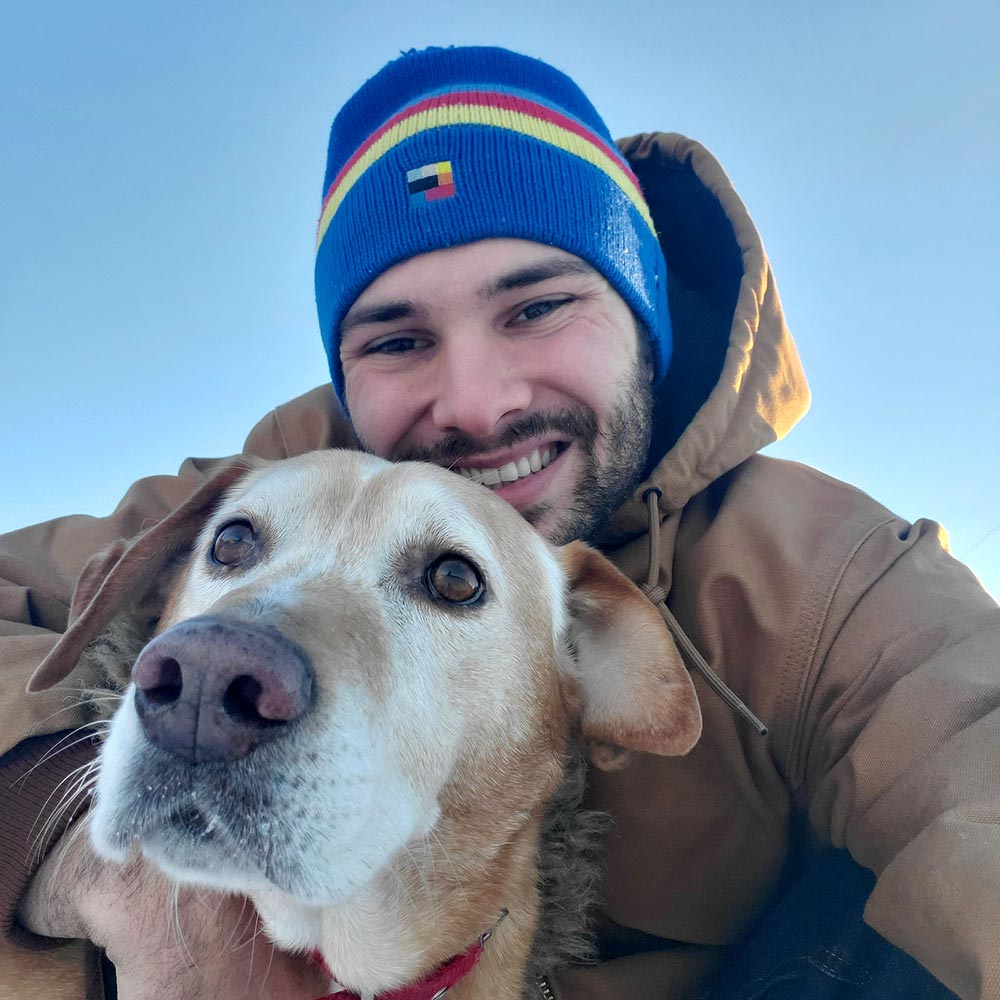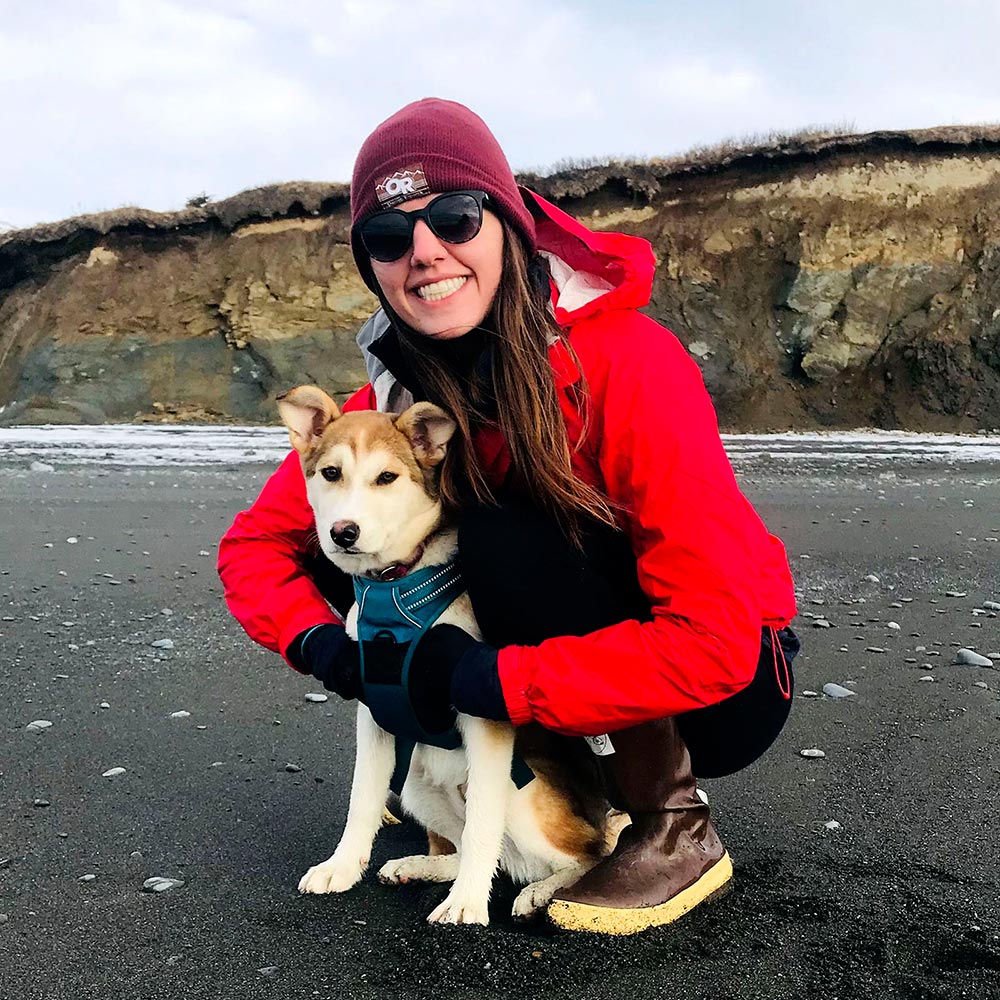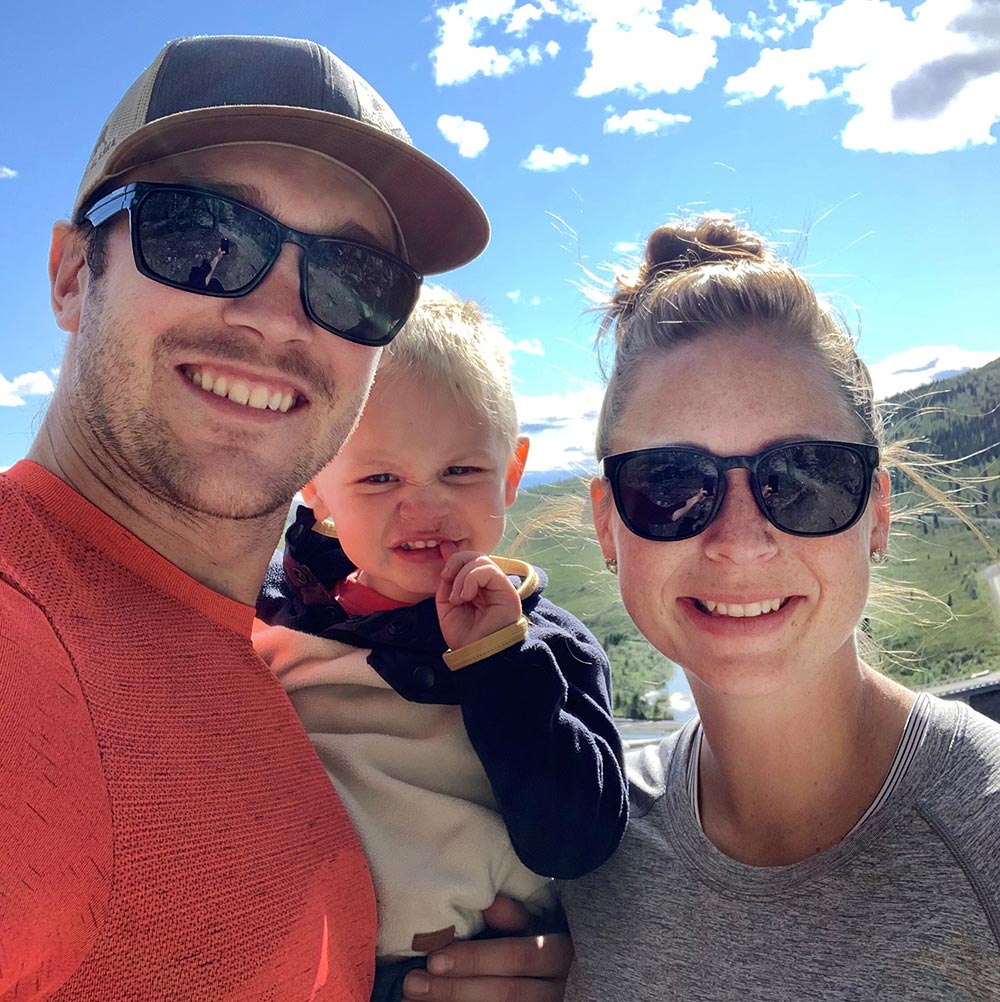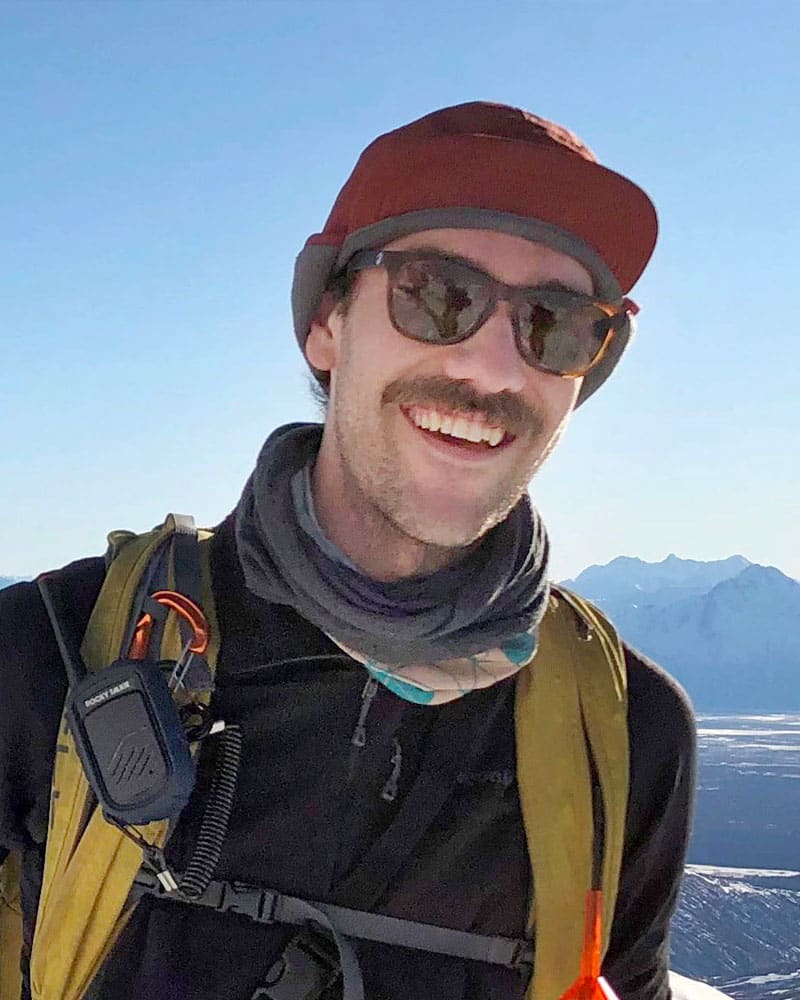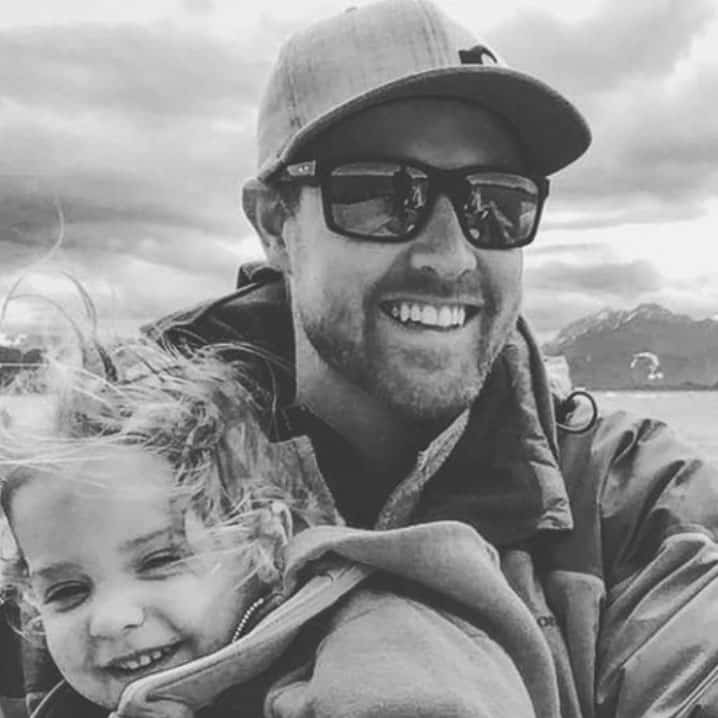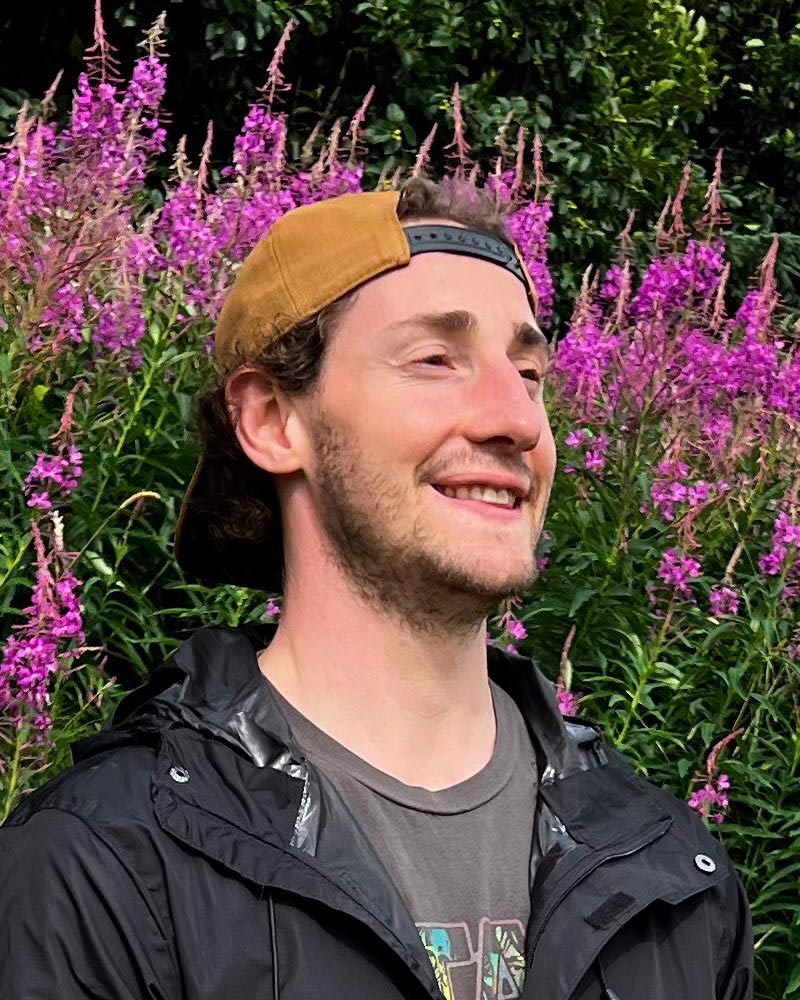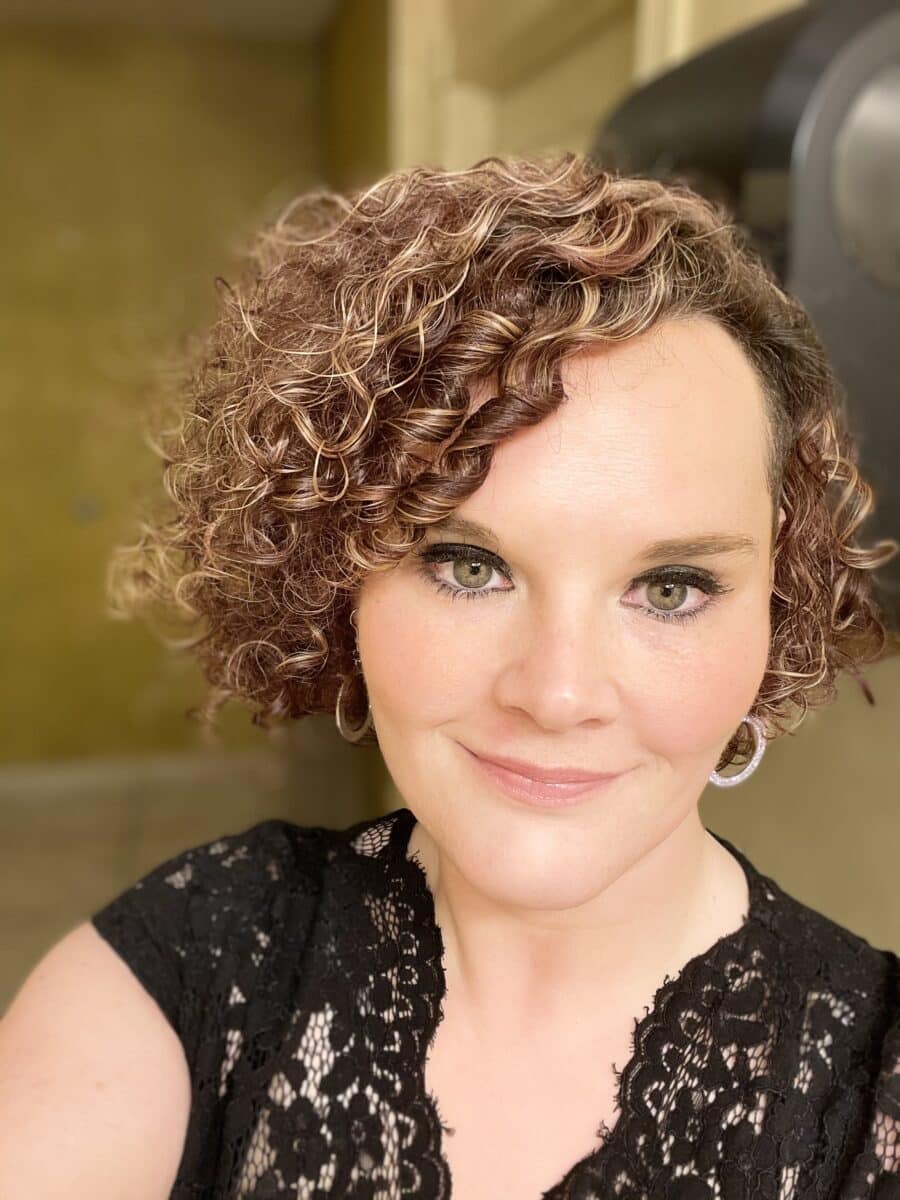Henu’ Community Wellness Court to serve residents across central Kenai Peninsula
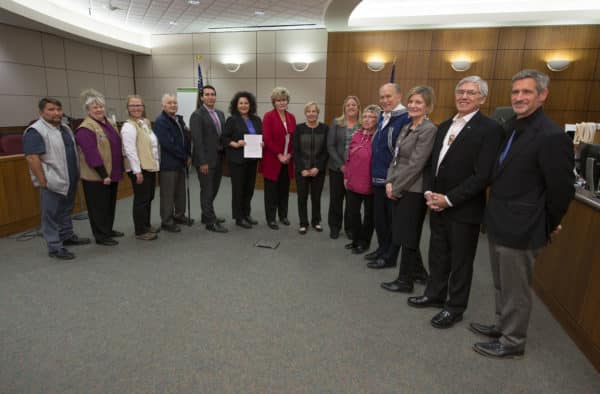
Kenaitze Indian Tribe’s Executive Council, Executive Director, representatives of the Alaska state court system, and the states executive branch pose following the ceremony.
The Kenaitze Indian Tribe has officially entered a historic government-to-government partnership with the Alaska Court System, signing an agreement to create a joint-jurisdiction state-tribal therapeutic court that will serve people across the central Kenai Peninsula later this year.
Representatives of the tribe, state court and the Office of the Attorney General signed the agreement Thursday afternoon in Courtroom 203 of the Rabinowitz Courthouse in downtown Fairbanks.
The Henu’ Community Wellness Court will serve adults who face legal trouble stemming from substance use. The court will target drug and alcohol offenders – including those in families with Children in Need of Aid (CINA) cases – living in the tribe’s service area, which spans from Cooper Landing south to Ninilchik. Defendants charged with property crimes may also be considered if the offense stems from substance use. The idea of the court is to get to the root of participants’ problems and give them the resources to pursue sobriety rather than send them to directly to jail.
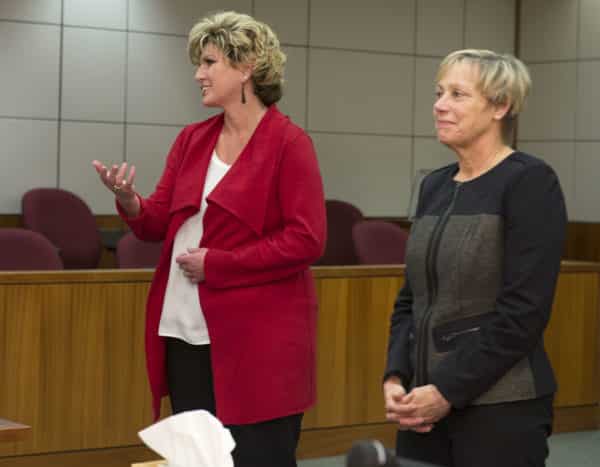
Kenaitze Indian Tribe Chief Judge Kim Sweet and Kenai Superior Court Judge Anna Moran talk about the difference the new court will make in the lives of those it touches.
Two judges – Kenai Superior Court Judge Anna Moran and Kenaitze Indian Tribe Chief Judge Kimberley Sweet – will sit together for hearings at the tribe’s courthouse in Old Town Kenai.
“We share the same values, we share the same passion,” Sweet said.
Added Moran, “This is a chance for us to join together and bring wellness to our community.”
The new court will have the capacity to work with 20 participants at a time, but the plan for now, Sweet said, is to gradually build toward that number.
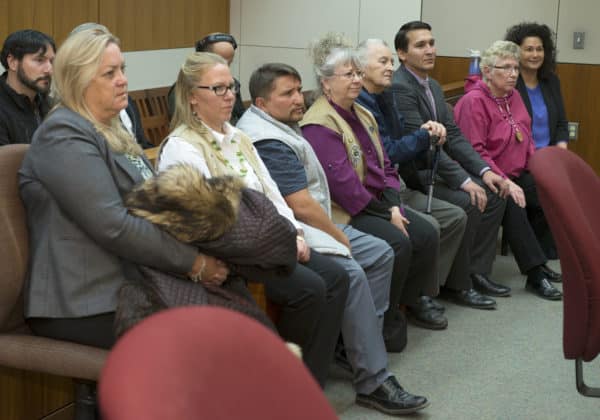
Kenaitze Indian Tribe’s Executive Council and Executive Director sit in the front row of the the Rabinowitz Courthouse in Fairbanks.
The tribe, state court judges and the Department of Law have been meeting for the past several months with stakeholders and members of “Project TEAM” – Together Everyone Achieves More – to develop the joint-jurisdiction court. Project TEAM includes law enforcement, legal professionals, health experts and other professionals from across the community. The Department of Justice, Bureau of Justice Assistance provided a training and technical assistance grant.
Leaders modeled the project on successful joint-jurisdiction efforts in California and Minnesota, where similar courts have reported reduced recidivism, increased public safety and improved relationships across communities.
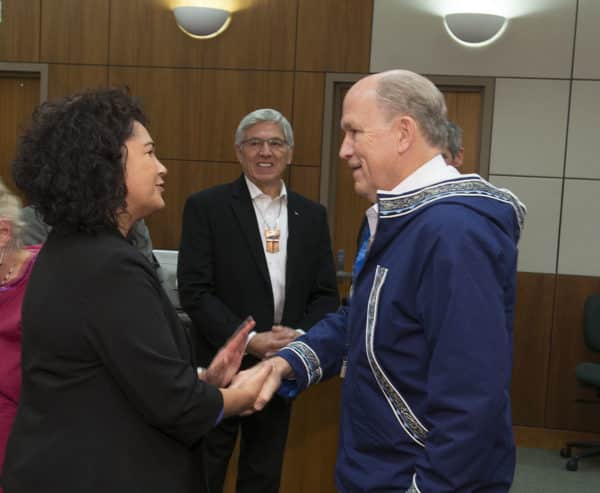
Kenaitze Executive Director Jaylene Peterson-Nyren shakes Gov. Bill Walker’s hand following the ceremony. Lt. Gov. Byron Mallott, center, was also present as representatives of the tribe, state court and the Attorney General Office signed the agreement launching a new joint-jurisdiction wellness court for Kenai on Thursday afternoon at the Rabinowitz Courthouse in Fairbanks.
Alaska Gov. Bill Walker, who attended the signing ceremony with Lt. Gov. Byron Mallott, said Alaska has one of the highest recidivism rates in the United States.
He expressed support for the project, saying it’s time to take a different approach when handling substance use cases.
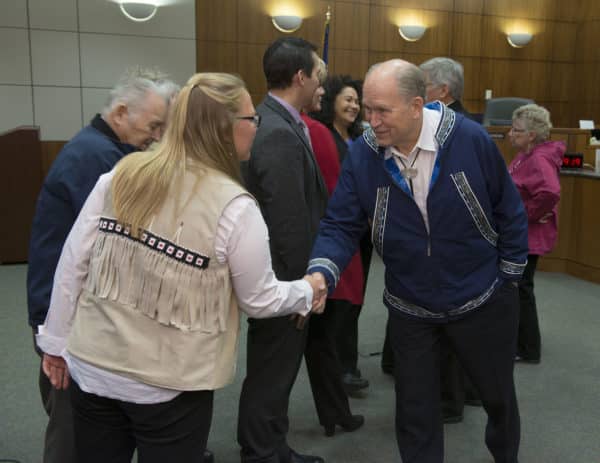
Executive Council Chairperson Jennifer Showalter Yeoman shakes Gov. Bill Walker’s hand following the ceremony.
“This is the direction we need to be going,” Walker said. “It’s much more of a collaborative process. The collaborative relationship is what I’m interested in, so I’m very, very pleased with the work that’s taken place for this to happen.”
Henu’ will be a post-plea, pre-sentencing court, meaning offenders plead guilty to their charges and sentencing is delayed until the participant graduates, opts out or is discharged from the program. There is a more favorable outcome for those who graduate and a less favorable outcome for those who don’t. Participation is voluntary, requiring the consent of the defendant, judge and District Attorney’s Office.
Sweet said there are many benefits to participating in the program.
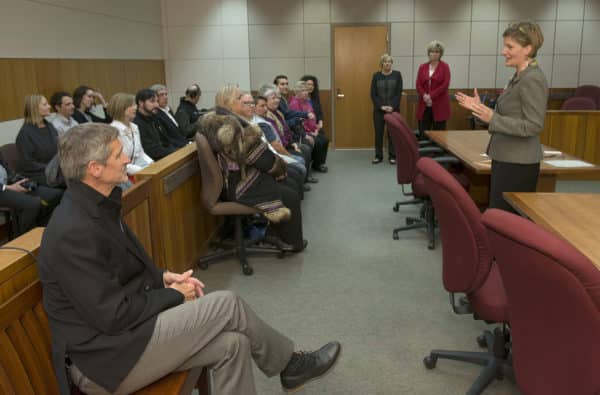
Alaska Attorney General Jahna Lindemuth introduces participants Thursday at a historic government-to-government meeting to sign an agreement supporting the creation of a joint state-tribal therapeutic court at the Rabinowitz Courthouse in Fairbanks.
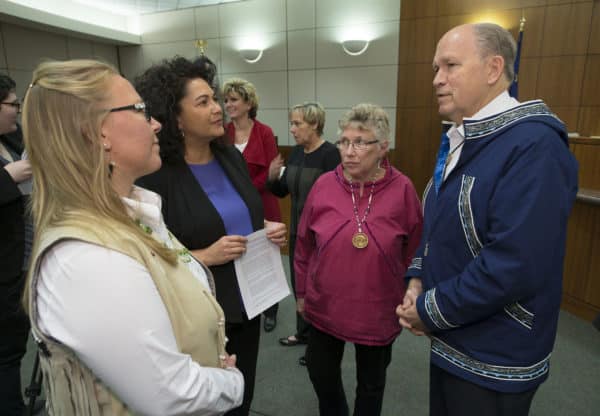
Executive Council Chairperson Jennifer Showalter Yeoman, Executive Director Jaylene Peterson-Nyren, Council Secretary Liisia Blizzard and Gov. Bill Walker talk following the ceremony.
The court will help offenders get reestablished in the community. It will hold them accountable. It also will be designed to provide peer-to-peer support for those involved. And the program will encourage and help participants to pursue employment and education.
“Instead of punitive, it’s restorative,” Sweet said.
In addition to the substance use connection, there will be specific eligibility requirements. An individual charged with an unclassified or class A felony will not be eligible, nor will anyone with an outstanding felony warrant from another state. Participants must be at least 18 years old and cannot be on parole, among other stipulations. The court will be open to all community members, not just tribal members.
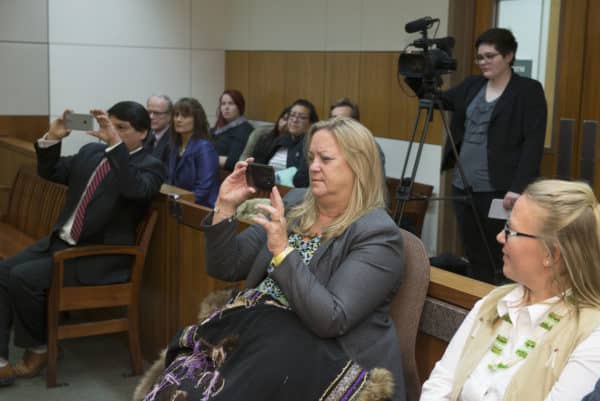
Executive Council member Diana Zirul, at center, photographs the signing ceremony Thursday at about 3 p.m. in Fairbanks.
The program will consist of four phases – orientation and assessment, education and planning, skill development and feedback, and maintenance and transition. The phases will last a total of at least 18 months.
Those who enter the program will develop an individualized “Life Change Plan.” The plan addresses everything from a participant’s criminal influences, to their values and beliefs, to their temperament and personality, to family factors, and more.
Participants also are assigned a tribal probation officer and receive a comprehensive and integrated program of drug and alcohol treatment.
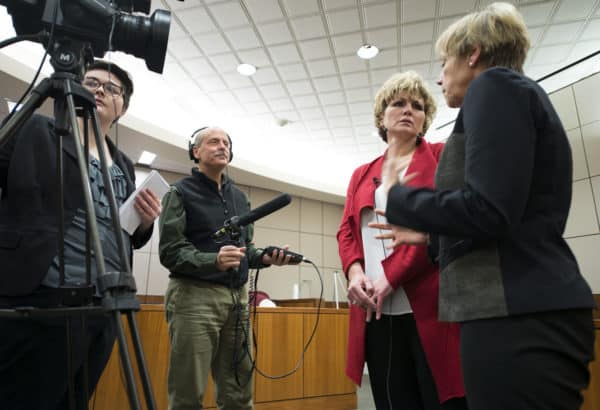
News 13’s Julia Laude and KUAC’s Robert Hannon interview Chief Judge Kim Sweet and Kenai Superior Court Judge Anna Moran following the historic signing. They will sit together for hearings in the new Henu’ Community Wellness Court.
“It’s all about helping broken people and broken families,” Moran said.
The project aligns with the tribe’s Dene’ Philosophy of Care. The philosophy takes a whole-person approach toward health, focusing on not just one but all areas of a person’s well-being, including physical, mental, spiritual and emotional wellness.
As part of the program, participants will receive behavioral health treatment at the Dena’ina Wellness Center, which is across the street from the tribe’s courthouse.
“It’s a major component of this,” Sweet said.
Sweet also thanked members of Project TEAM and the many community partners that helped make the project possible.

